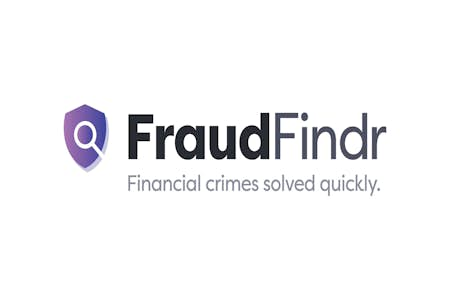As we get older, our financial goals may shift significantly. Managing finances becomes more critical, from retirement preparation to passive income streams. One effective tool is a credit card. With the rise of online purchases, it's an essential part of modern-day living. However, with so many credit cards available, finding the right one can take time and effort. So, where do you start?
After all, credit cards are not a one-size-fits-all solution. There are various types of credit cards with different features, benefits, and interest rates. Some credit cards offer cash-back rewards, while others offer travel rewards or zero interest rates. It all depends on what you need and how you plan to use your credit card.
Each credit card option serves different purposes, and you must choose one aligned with your needs. To make things easier, we’ve put together this guide to help you understand exactly how credit cards work, what options are available, and how to choose the right credit card for your circumstances.
How credit card providers work out your eligibility
All sorts of factors go into working out your eligibility for a credit card. Typically, providers use a credit reference agency to perform a credit check. It’s worth ensuring the information credit reference agencies hold on you is correct before applying.
These credit reference agencies can also point out if any information needs to be added to your credit record. For example, if you’re not on the electoral register, this may affect your credit score. But it’s relatively easy to rectify on your end and could result in better deals.
Understanding how various factors impact your credit card eligibility can help you apply for better deals. Here are some key factors card providers consider when offering you a credit card.
Repayment history
A critical factor that issuers consider is your repayment history. This refers to how you have previously managed your credit, including whether you have made your payments on time and in full. If you have a history of late or missing payments, this can negatively impact your credit score and reduce your chances of getting approved for a credit card.
Length of credit history
Another factor that providers consider is the length of your credit history. This is the amount of time you have been using credit, including any existing credit cards, loans, and other forms of borrowing. Typically, credit histories go back at least six years. Having a more extended credit history can improve your chances of getting approved, giving providers a better understanding of how you manage credit over time.
If you’ve never borrowed money, you might have a low credit score, so it might be worth having a credit card even if you don’t “need” it. It helps build your credit score when you do need to borrow money.
Number of credit accounts
Providers also look at the number of credit accounts on your report. This includes the number of credit cards, loans, and other forms of borrowing that you have. Typically, having around two to three credit cards simultaneously is acceptable.
Credit accounts are a balancing act. Having too many accounts can be a red flag, as it may indicate that you need more credit support or help manage your finances. But also, if you’re repaying all your debts on time, it can help you build your credit score. Plus, multiple credit cards could keep your credit utilisation rate low, which is also considered when applying.
Other factors
In addition to the factors listed above, providers may also consider other factors when assessing your eligibility. These can include your income, employment status, and level of debt. But, it’s worth keeping in mind that there are certain factors providers are not allowed to base their decision on, as this would be considered discrimination. These include:
- Sex
- Disabilities
- Religion
- Sexuality
- Race
Refusing your application based on these factors is discriminatory, and credit brokers and providers are not allowed to do so.
Jargon buster: exploring the anatomy of a credit card
Shopping for the right credit card can get overwhelming very fast. There are so many different industry terms used. It often feels like they’re designed to confuse you. So before we explore the types of credit cards you can apply for, check out our jargon buster that dissects the world of credit cards for you.
What is a balance transfer fee?
A balance transfer fee is incurred when you move an existing debt from one lender to another. Credit card companies commonly charge this fee for their balance transfer cards, and it is typically a percentage of the total amount transferred. It’s worth shopping around to keep this fee low, as many card providers offer attractive introductory offers that could lower the amount you need to pay out.
What is a representative APR (annual percentage rate)?
Representative APR is a term used in credit cards to describe the interest rate offered to most customers. So if the APR is 15%, at least 51% of customers receive a 15% or lower rate. The remaining customers may receive a higher rate based on their creditworthiness.
You’ll usually be shown a representative example when you apply for a credit card that explains what rate you’re likely to get, at what limit, and over what period. Understanding the representative APR will give you a good idea of the interest you’re likely to pay.
What is a credit card balance?
A credit card balance is the amount of money you owe to your credit card company for purchases made with your credit card. It is essential to regularly monitor your balance to avoid accumulating debt and incurring interest charges. Paying off your balance in full each month can help build and improve your credit rating, saving you money in the long run.
The credit card balance is similar if you’ve ever had an overdraft. It’s what you owe your provider; interest often applies if it is not paid off within a specified period.
What is an annual fee?
An annual fee is a charge credit card providers impose on their cardholders once a year, regardless of whether you use the card. Many providers don’t charge any annual fees. You’re more likely to see an annual fee if you’re applying for a rewards credit card that offers certain perks such as travel rewards, cashback at certain retailers, or a higher credit limit. So, before deciding on a credit card with an annual fee, ensure that the benefits outweigh the costs for you.
What is the interest-free period?
The interest-free period is the time between making a purchase on your credit card and the date your bill is due. You won't typically incur interest if you pay off your card in full before the bill is due. Many cards also offer 0% interest on purchases for several months, allowing you to make purchases without adding interest. This could enable you to spread costs over time without incurring interest.
What is a credit limit?
A credit limit is the maximum amount of money a lender will allow you to borrow on a credit card. It is determined based on your credit score, income, and other factors. Exceeding your credit limit can result in fees and damage your credit score. Understanding your credit limit and using credit responsibly to maintain a healthy financial life is essential.
What are minimum credit card repayments?
Minimum credit card repayments are the lowest amount you can pay monthly to keep your account in good standing. This amount is usually a percentage of the outstanding balance or a fixed amount. Your credit card provider will be able to tell you the exact conditions.
Only paying the minimum credit card repayment can result in long-term debt and significant interest charges. But to alleviate this, the financial conduct authority (FCA) has introduced measures to push providers to help people with long-term credit card debt tackle it. This can include new repayment deals, waiving interest fees, or other assistance types.
To avoid paying interest, paying off the whole credit card before your bill is due each month is best. You could set up a direct debit to help you do this.
What is a credit utilisation rate?
Your credit utilisation rate refers to the amount of credit you use compared to the available amount. A good credit utilisation ratio can be crucial in maintaining a healthy credit score.
Experts suggest that your credit utilisation should be kept under 30%, which means that if your credit card has a limit of £1000, your balance shouldn’t exceed £300. Creditors generally see high levels of credit utilisation as a sign of financial risk, so paying attention to this factor when managing your credit cards is essential.
By keeping your credit utilisation under control and making timely payments, you'll be able to maintain a healthy credit score and improve your financial future.
What’s the point of getting a credit card?
If you’ve spent your life avoiding debt and relying on cash, you might be wondering whether there’s any point in taking out a credit card.
There are plenty of benefits when it comes to using credit cards. Many come with rewards programs that allow you to earn points or miles that can be redeemed for flights, hotel stays, or other goodies. Plus, they often offer extra protections when making purchases online.
But even if you don't care about rewards, there's another compelling reason to consider getting a credit card: to show lenders that you're responsible when borrowing. This is especially true if you're thinking about taking out a larger loan down the line. By using a credit card regularly and paying it off in full every month, you're demonstrating that you're a low-risk borrower who can be trusted with more significant amounts of credit.
Of course, it's important to be careful with your credit card use. Ensure you're spending only what you can afford to pay back and stay on top of your payments to avoid any fees or damage to your credit score. However, with a little bit of caution and responsibility, a credit card can be a powerful financial tool for anyone - no matter their age or background.
Types of credit cards: what credit card is right for you?
Now that you understand why you might need a credit card, you must consider what type suits you. Before comparing credit card deals and deciding on a provider, you must understand that different credit cards are used for other purposes.
Understanding what you want from your credit card can help you decide what is right for you.
Credit builder cards: for building your credit score quickly and effectively
A credit builder or credit building card is a simple credit card designed specifically for people with non-existent or bad credit. These cards typically have lower credit limits, higher interest rates, and fewer perks than traditional credit cards. However, they also come with unique features that can help you build your credit score.
One of the most substantial benefits of using a credit builder card is that it can help you establish a positive payment history. Your payment history makes up a significant portion of your credit score, so making timely payments each month is essential. With a credit builder card, you can easily set up automatic payments to ensure you never miss a payment.
Plus, it can increase your available credit. Your credit utilisation ratio plays a vital role in your credit score, and having a higher credit limit can lower your utilisation percentage. Over time, this can improve your credit score.
Credit builder cards can also help you build credit without taking on more debt. Because these cards generally have smaller credit limits, you're less likely to overspend and rack up debt. By making small purchases and paying them off each month, you can steadily improve your credit score without putting yourself in financial trouble.
They also tend to have a lower eligibility criterion because of their purpose, which often means that they might be the only product available to you if you have a poor credit history. If you want to build your credit score quickly and effectively, a credit builder card may be the perfect solution.
Balance transfer credit cards: for paying off hefty credit balances with low or no interest
If you have credit card debt accruing interest, you may feel overwhelmed and need help tackling it. That’s where balance transfer cards come in; these cards allow you to transfer your outstanding balance from your current credit card to a new card with a lower interest rate, often 0% for an introductory period.
This can give you a much-needed break from interest charges, allowing you to pay off your debt more quickly and efficiently. However, it's important to note that balance transfer cards typically charge a fee for transferring your balance, usually a percentage of the total amount shared.
Also, if you don't pay off your debt before the introductory period ends, you may face high-interest charges again. If you're considering a balance transfer card, do your research and compare the options available to find the best fit for your needs.
Cashback credit cards: for making the most of your money
Cashback credit cards are a great way to make the most of your money. You use the card for purchases and earn cashback or reward points that can add to substantial savings over time. You could use the cashback savings to make more purchases, like Christmas presents.
These cards only make sense if you commit to paying off the credit card balance in full each month. Otherwise, any rewards you earn will likely be outpaced by interest fees. But, if you clear your balance each month, a cashback credit card can be an excellent tool in your financial management toolkit.
Purchase credit cards: for spreading the cost of larger purchases
If you’re considering making a large, new purchase, then a good old Visa or Mastercard purchase credit card could be the way to go. Many purchase credit cards come with a 0% interest period, ranging from around three months to 24 months.
So whether you dream of a posh sofa suite or a top-of-the-range mattress for better sleep, you can spread the cost with a 0% interest credit card.
And if your retailer doesn’t accept credit cards for whatever reason, you could even look into money transfer credit cards that allow you to transfer some of your balance to your current account. However, these types of credit cards attract money transfer fees in the region of 5%, so it’s worth working out whether they make sense for you.
Travel credit cards: for earning air miles and travelling in style
Travel credit cards offer a cost-effective solution for spending money abroad. They typically come with no foreign transaction fees and competitive exchange rates, allowing you to spend overseas without worrying about getting the best rate.
Plus, some of these travel credit cards come with air miles too. You can rack up miles and get discounts on travel costs such as flights and hotels, making it even more affordable to go on many adventures in your older age.
How to find the best credit card for you
Now that you know about your different credit card options, you might be wondering, where should you actually look for a credit card? And how should you compare them? Here are a few tips to help you get started.
Check with your current bank account provider
Before you start your research journey, check with your current account provider to see if they offer any credit card deals. If they do, it may be worth exploring these options first, as you're already familiar with their services and policies, and there may be deals for existing customers.
Use comparison websites
Comparison websites are a valuable tool for comparing different credit cards. The best part is that you can use several comparison websites to get a broad range of options. Websites like MoneySuperMarket, Which, and uSwitch are great places to start.
They’ll be able to offer you deals from a wide range of providers, so whether you’re interested in an American Express, Santander, or Barclaycard, they’ve got your back.
Check fees for credit card deals and compare
When looking at credit card deals, make sure to understand what’s actually on offer. Look for information such as the interest-free period, purchase rate, and any other charges. These factors can impact your decision and affect your overall financial cost. Also, consider any rewards programs offered to maximise your spending potential.
How to apply for a credit card (and get accepted)
Once you’ve found a few potential credit card contenders, you might want to increase your chances of getting accepted. There are a few steps you can take to achieve this. Here is an overview to help you get started.
Check your credit file
Before applying for a credit card, you should check your credit file to ensure that it is up-to-date and accurate. Your credit file records your past credit applications, payments, and balances, and lenders use it to assess your creditworthiness. By checking your credit file, you can see if there are any errors or omissions that could affect your credit score or your chances of getting approved for a credit card.
You can access your credit file free from one of the UK's three credit reference agencies: Equifax, Experian, and TransUnion. You can also use online tools such as Credit Karma or ClearScore to monitor your credit score and get personalised recommendations for credit cards that match your profile.
Keep up with payments for existing credit cards
If you already have one or more credit cards, you should keep up with the payments and avoid missing deadlines. Late or missed payments can have a significant negative impact on your credit score, and they can also lead to additional charges such as interest, fees, or penalties.
To avoid missing payments, you could set up a direct debit or standing order to pay at least the monthly minimum. You could also use a budget planner or a spending tracker to monitor your expenses and ensure you have enough money to cover your bills and repayments.
Space out any credit card applications
When you apply for a credit card, the lender will perform a credit check to assess your eligibility and suitability. Each credit check can leave a footprint on your credit file, affecting your credit score and chances of getting approved for other credit products in the future. This typically doesn’t last too long and won’t have a massive impact on your score if your score is good to begin with.
You may see your credit score drop if you make multiple applications. It’s best to space out applications or use an eligibility tool to determine what cards you’re most likely to be approved for.
Use an eligibility checker
To make applying for a credit card more manageable and efficient, you could use an eligibility checker to check your chances of getting approved before applying. An eligibility checker is an online calculator that asks you a few questions about your personal circumstances, such as your age, income, and credit history and gives you a list of credit cards you're likely eligible for. It can help you find the best credit card offers for your circumstances.
Using an eligibility tool can save you time and hassle, as you can avoid making applications that are likely unsuccessful or detrimental to your credit score. However, it's important to note that an eligibility tool is not a guarantee of approval, and the lender may still need to perform a hard credit check before making a final decision.
Apply online
Most credit card applications now happen online and can take just a few minutes to complete. To apply for a credit card online, you'll typically need to provide some personal details, such as your name, address, date of birth, and contact details, as well as some financial information, such as your income, employment status, and existing debts.
You may also need to upload some supporting documents, such as proof of identity, address, or income. It's crucial to ensure that all the information you provide is accurate and truthful, as any discrepancies or misrepresentations could lead to your application being declined or cancelled.
Nowadays, decisions can be instantaneous, especially if you have pre-qualified for a card. If so, you might be sent a virtual credit card you can use immediately by adding it to Apple Pay or Google Pay.
How to make the most of your new credit card
Now that you’ve got your shiny new credit card, how do you make the most of it? Of course, your exact strategy will depend on the type of credit card you’ve got. But the below principles are a great starting point for most credit cards.
Use it as payment protection when making purchases
Did you know paying with a credit card could give you extra protection if things go wrong? Section 75 protects you when you use your credit card to make a purchase that costs over £100 and less than £30,000. Your credit provider is equally liable as the retailer if something goes wrong with your purchase.
And it doesn’t matter if you fund the entire purchase with a credit card or only part of it. So you're still covered even if you deposit a new sofa on your credit card but pay the rest with cash. Technically, you’re covered even if you only put down 1p of the total purchase on your credit card.
If you do not receive the item or something that isn’t quite right, your credit card provider becomes as liable as the retailer to provide a refund.
Pay it off in full every month if you can
Did you know that it would take you, on average, just over 25 years to pay off your credit card if you only made the minimum required monthly payments? This assumes an average interest rate and limit. Even with FCA protections, it can be easy to get sucked into paying an ever-growing debt with lots of interest added on top.
Instead, pay off your credit card in full every month if you can. This will help you build your credit score, and you won’t need to pay interest on purchases you’ve made either. If paying it off in full is not possible, producing more than the minimum amount is usually best.
Of course, suppose you have a 0% interest introductory offer. In that case, you won’t accrue interest every month, and you may be able to pay off your card in instalments before the end of the introductory period to avoid interest.
Use it to spread the cost of a large purchase
It’s always worth comparing the finance options when making a large purchase. Nowadays, many retailers offer 0% interest deals to encourage you to spend your money at their business. But this isn’t the case everywhere.
If you have your heart set on a sofa set at a small business that can’t offer 0% financing, a credit card with no interest rate might be the way to go. This allows you to spread the cost of the item; as long as you pay off the card before the 0% interest rate expires.
Choosing the best credit card
By now, you’ve probably gauged that the best credit card for you depends on your financial goals. But whether you’re looking for a credit builder card to bump up your credit score or a travel card to galavant around the globe in your golden years, research is vital.
Make sure your credit rating is in the best shape possible before applying. Then, use comparison sites and eligibility checkers to apply for the best credit card deals. And remember: pay off the credit card in full each month when you can to avoid high-interest rates. Credit cards can be a great money management tool when used responsibly.








